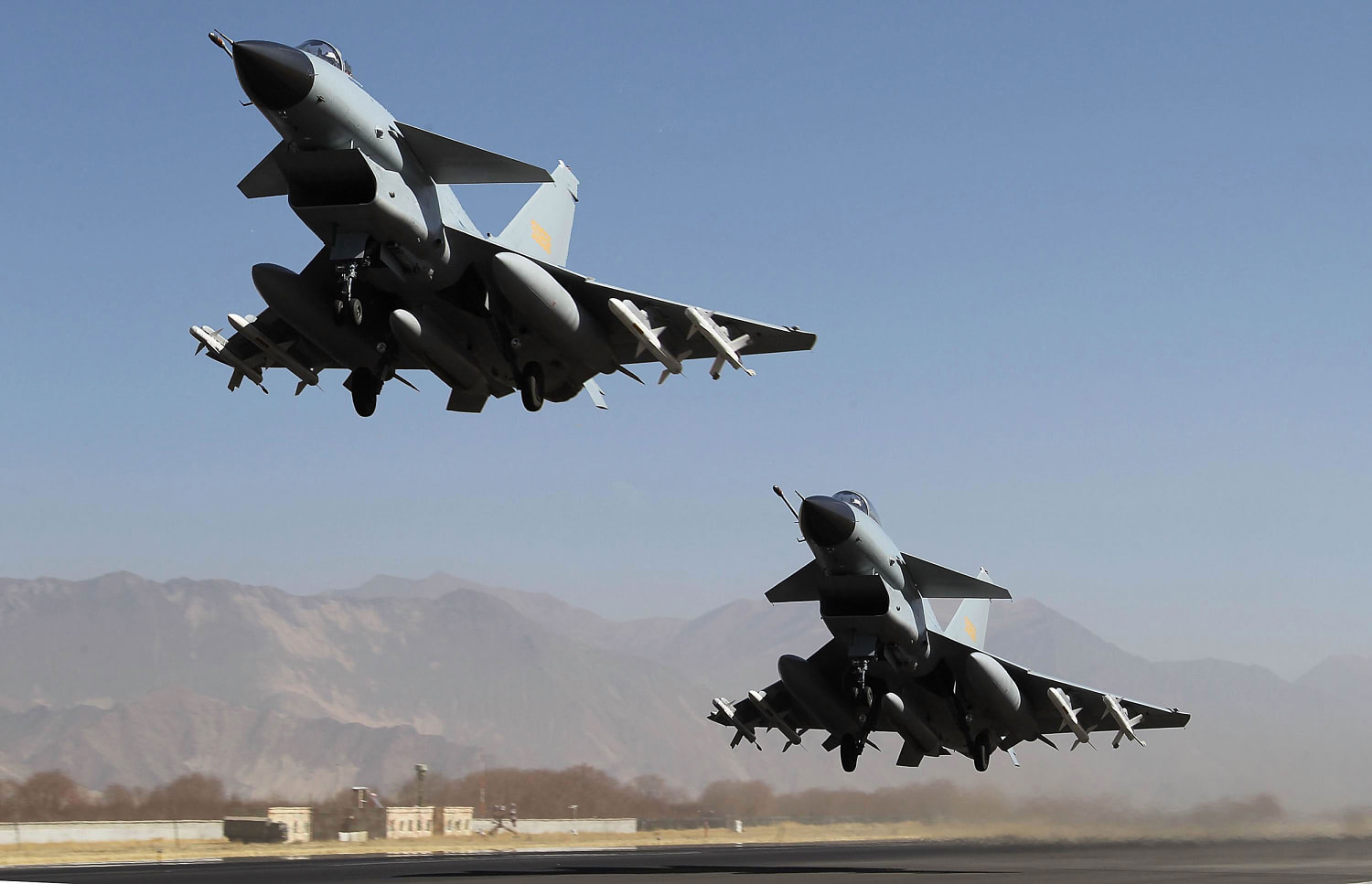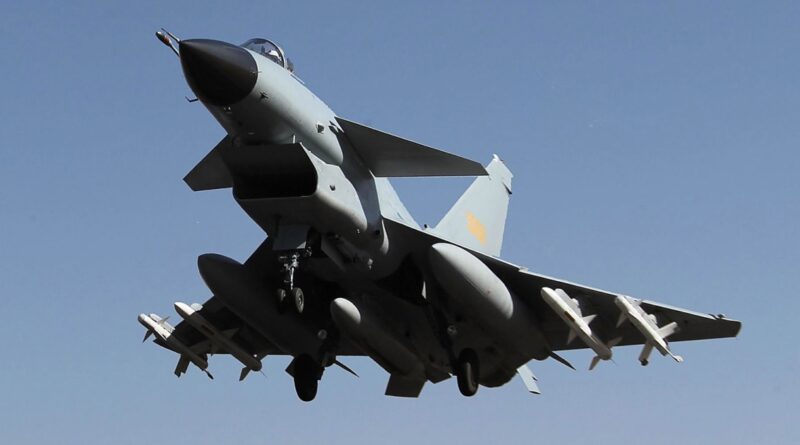Australia accuses China of unsafe behavior in aerial encounter with naval helicopter

MELBOURNE, Australia — Australia has protested to Beijing through multiple channels that a Chinese fighter jet endangered an Australian navy helicopter with flares over international waters, the prime minister said Tuesday.
The incident occurred Saturday as the Australian air warfare destroyer HMAS Hobart was enforcing U.N. Security Council sanctions against North Korea in international waters in the Yellow Sea, officials said Monday. There were no reports of injuries or damage.
Prime Minister Anthony Albanese said the Australian public expected an explanation from China.
“We’ve just made it very clear to China that this is unprofessional and that it’s unacceptable,” Albanese told Nine Network television.
“We’ve made it very clear … through all of our channels, at all measures at our disposal, including here publicly,” Albanese said.
The Chinese Foreign Ministry said Tuesday that the Australian helicopter had “deliberately approached Chinese airspace to provoke and disrupt, endangering China’s maritime and aerial security,” and that the Chinese military had taken “necessary measures” as a warning that it described as “lawful, compliant and professionally secure.”
China has “lodged solemn representations with Australia regarding its reckless actions,” a spokesperson said.
Albanese said it was important for Australia to speak out about such encounters.
“It’s important that we make clear our position, which has been done at the diplomatic levels, at government-to-government, but also defense-to-defense as well. And all of those avenues have been made clear. This issue, we have made public in order to be able to speak out very clearly and unequivocally that this behavior is unacceptable,” the prime minister said.
Defense Minister Richard Marles said Monday that a Chinese Chengdu J-10 fighter jet released flares in the flight path of an Australian navy Seahawk helicopter deployed from the Hobart.
He said the flares were 986 feet in front of the helicopter and 197 feet above it and the helicopter pilot had to “take evasive action in order to not be hit by those flares.”
“The consequence of being hit by the flares would have been significant,” Marles said.
“We will not be deterred from engaging in lawful activities and activities which are there to enforce U.N. sanctions in respect of North Korea,” he added.
It was the most serious encounter between the two nations’ forces since Australia accused the Chinese destroyer CNS Ningbo of injuring Australian navy divers with sonar pulses in Japanese waters in November. Australia said China disregarded a safety warning to keep away from the Australian frigate HMAS Toowoomba.
China maintains that the encounter took place outside Japanese territorial waters and that the Chinese warship caused no harm.
Albanese said the encounter would be raised with Chinese Premier Li Qiang when he visits Australia next month.
Albanese referred to the period since 2020 when China ended minister-to-minister discussions with the previous Australian government, which lost power at elections in 2022.
“One of the things that had broken down over a period of time was any dialogue. Dialogue is important. It’s always, always important to have avenues of communication,” Albanese told reporters.
During a visit to China earlier in November, Albanese invited Chinese President Xi Jinping to visit Australia for the first time in a decade as bilateral relations have improved in recent years from unprecedented lows. He said Tuesday that Xi would not visit Australia this year.
But Albanese said he expected to have “some face-to-face engagement” with the Chinese leader when they both attend G20 and APEC summits late this year.
Jennifer Parker, a naval expert at the Australian National University and a former naval officer, described the Chinese use of flares as “incredibly dangerous.”
“If the helicopter had ingested one of the flares into its engine, it could’ve shut down the engines of the helicopter and we could have seen the helicopter need to ditch with potential injuries or loss of life,” Parker told Australian Broadcasting Corp.
“So this isn’t normal by any stretch of the imagination,” Parker added. “Impeding its flight path I would interpret as a breach of international law.”





